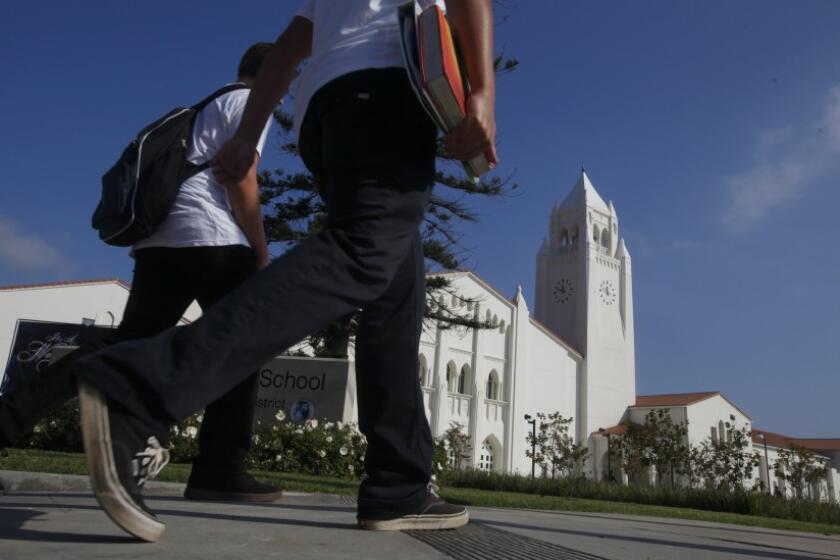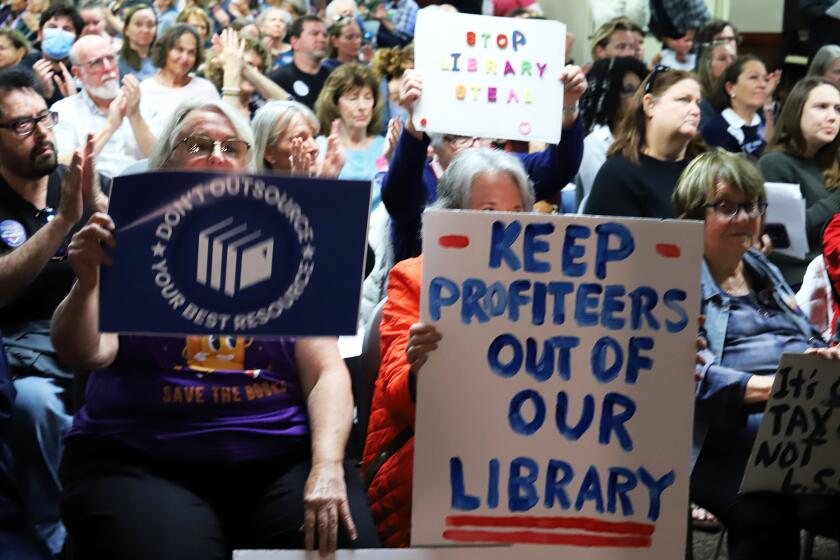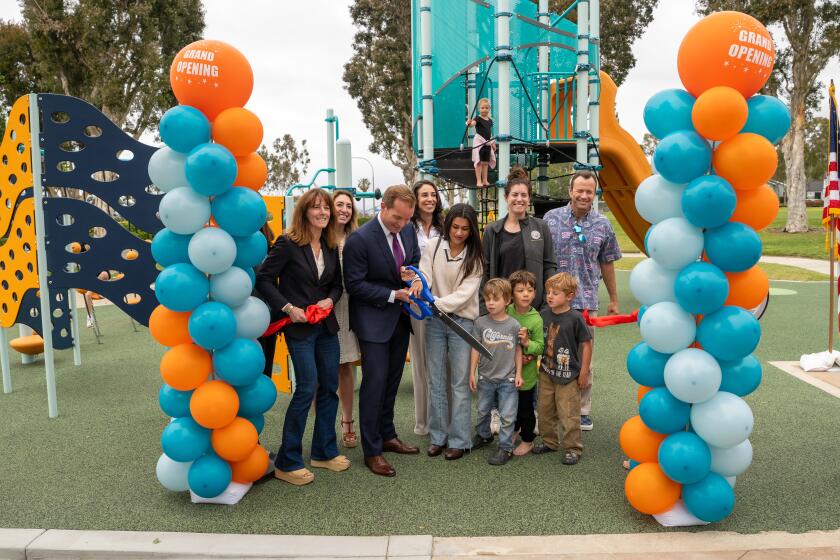Apodaca: As a newlywed waits for a green card, her mother-in-law looks to immigration reform
- Share via
On a gorgeous sunny afternoon last June, my son and his sweetheart faced each other, masks affixed, hands clasped, at the Orange County Clerk-Recorder’s office in Laguna Hills. They promised to love each other for all eternity.
Or something like that. Due to coronavirus restrictions I was the only one allowed inside with them, and I could barely hear their vows over the din from two — or was it three? — other COVID-style wedding ceremonies farther down the counter, and from a woman inquiring loudly about where to file a particular real estate document.
The setting had all the charm of the DMV, but no one cared. It was a joyous occasion; for one blissful day my son and his bride celebrated their commitment to each other and put aside their concerns over the challenges ahead.
My daughter-in-law, you see, is an immigrant.
Dominique — Domi, as we call her — first came to the U.S. from Argentina in 2015 as a Fulbright Scholar and met my son shortly afterward. Since then she has volunteered as an interpreter at the United Nations, earned a master’s degree and taught at a major university.
The SAT contributes next to nothing to deep and meaningful learning, but it’s part of a culture in which schools have felt pressed to tailor their curricula to improve standardized test scores.
What those impressive credentials don’t fully convey is that she is a brilliant, kind-hearted, scrupulously ethical person who has jumped through every hoop — and there have been many — required by our labyrinthine immigration system.
Nonetheless, very soon she must board a long flight back to Argentina, in the middle of a pandemic. There she will wait — a year, two years, we don’t know — while her green card application is processed.
My son plans to follow a few months later, after he completes his master’s degree in public policy at UCLA. His career ambition is straightforward: to save the world from environmental catastrophe. It’s a goal he had hoped to pursue here in the U.S., but if his wife must go, so will he.
The reason why goes back to that Fulbright scholarship.
The prestigious Fulbright Program, established in 1946 under legislation introduced by Sen. J. William Fulbright, is sponsored by the U.S. Department of State’s Bureau of Cultural Affairs. It is intended as a cultural exchange between participating nations through the selection of scholars and professionals to study and teach abroad.
The goal, Sen. Fulbright stated, “is to bring a little more knowledge, a little more reason, and a little more compassion into world affairs and thereby increase the chance that nations will learn at last to live in peace and friendship.”
Over the years, scores of Fulbright alumni have become heads of state, Nobel Laureates and Pulitzer Prize winners. Domi was thrilled to be part of this illustrious legacy.
There was a catch.
A detailed explanation of her situation involves many letters and numbers: J1 and F1 visas, OPT (the Optional Practical Training program that allowed her to work here for a year), and section 212(e) of the Immigration and Nationality Act, the federal law first passed in 1952.
But the bottom line is that because Domi was a Fulbright Scholar, she must return to Argentina for a cumulative total of two years. She has about one year remaining to fulfill this requirement, but she will have no legal means to live and work in the U.S. until she receives a green card. There’s no way of knowing how long that will take.
Waivers to this requirement are rare. Inexplicably, marriage to a U.S. citizen isn’t enough to qualify. Domi’s attempt to receive a waiver was denied, and with that rejection all the plans that she and my son had been making came crashing down.
I have many questions. Why does a program whose intent is to promote cultural cooperation maintain such a rigid rule that tears families apart? Does it serve any useful purpose today? Did it ever?
I contacted the State Department, which sponsors Fulbright, and was referred to the Department of Homeland Security.
DHS referred my query to U.S. Citizenship and Immigration Services, which it oversees, but said I really needed to contact the State Department. I never heard from USCIS.
I then tried contacting the Fulbright program directly but was told that the State Department had already responded to my query.
Feeling dizzy? Welcome to the world of an immigrant trying to navigate what must surely be the most convoluted system on Earth.
There’s more at stake here than an obscure policy that has upended my son’s life, for it is but one small representation of the urgent need to rethink our massive immigration apparatus.
Can we at long last summon the political will to overhaul a system that passed the dysfunctional mark eons ago, and rebuild it into something based on facts, common sense and, dare I say, the compassion that Sen. Fulbright championed?
For now, I try, with varying degrees of success, to sideline my anger and frustration and focus my thoughts on all that is good.
My son is adventurous and resourceful and has lived abroad before, I remind myself. I’ll visit as soon as it’s safe. I’m excited to explore Argentina, and my limited Spanish skills will certainly improve.
Most important, I know that my son has found a wonderful partner to travel through life with. What more could a mother want?
On my last birthday, they gave me a lovely necklace with a shiny gold heart. When I wear it, Domi told me, I will feel them with me.
I don’t need to tell them that wherever they go, a piece of my heart goes with them.
All the latest on Orange County from Orange County.
Get our free TimesOC newsletter.
You may occasionally receive promotional content from the Daily Pilot.





